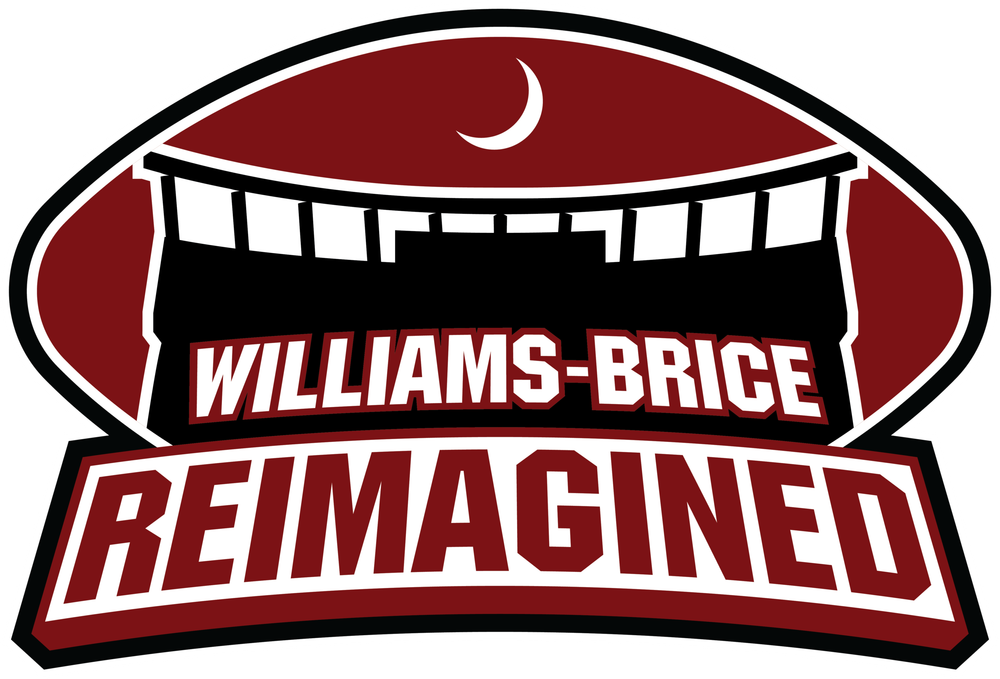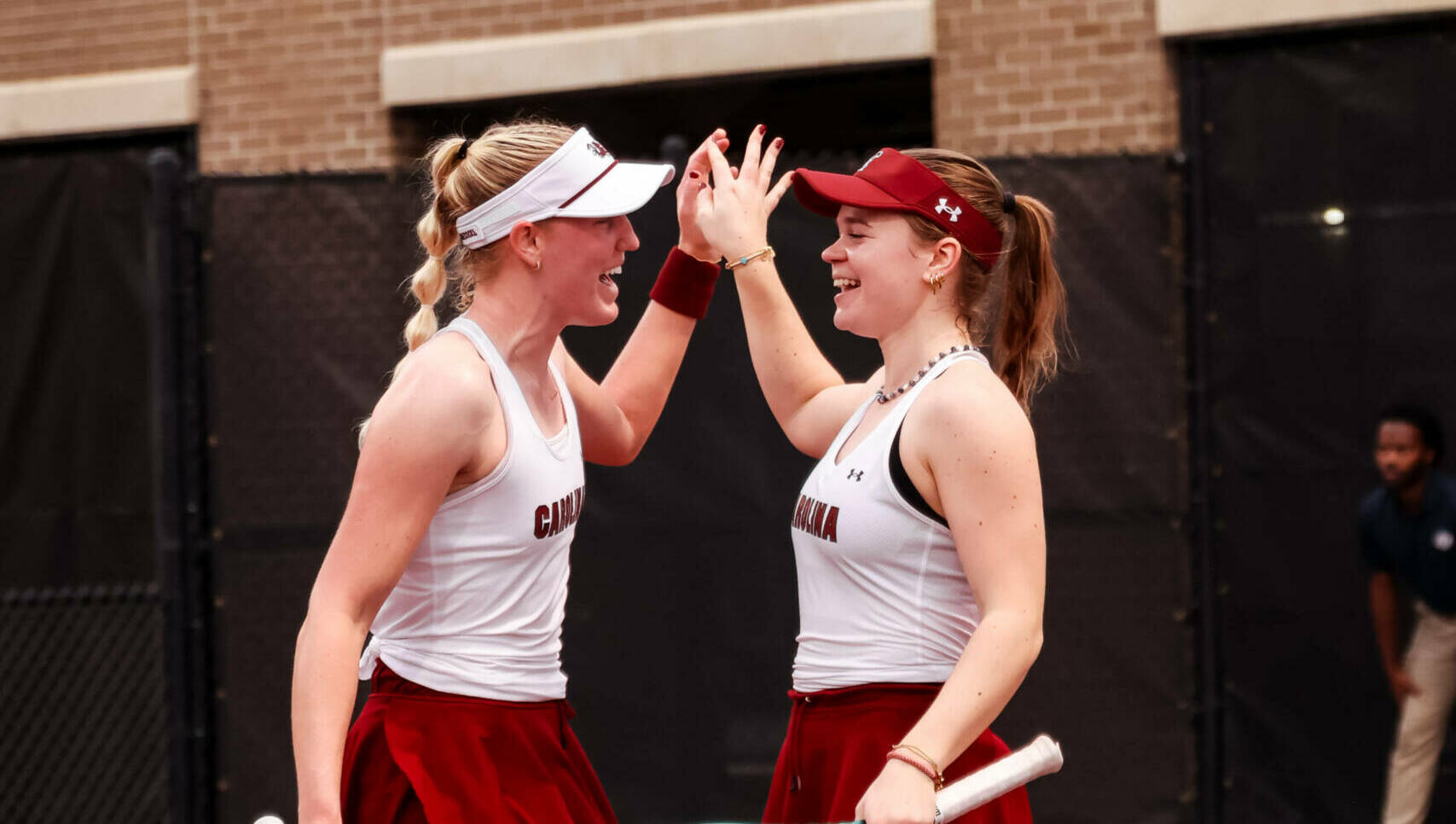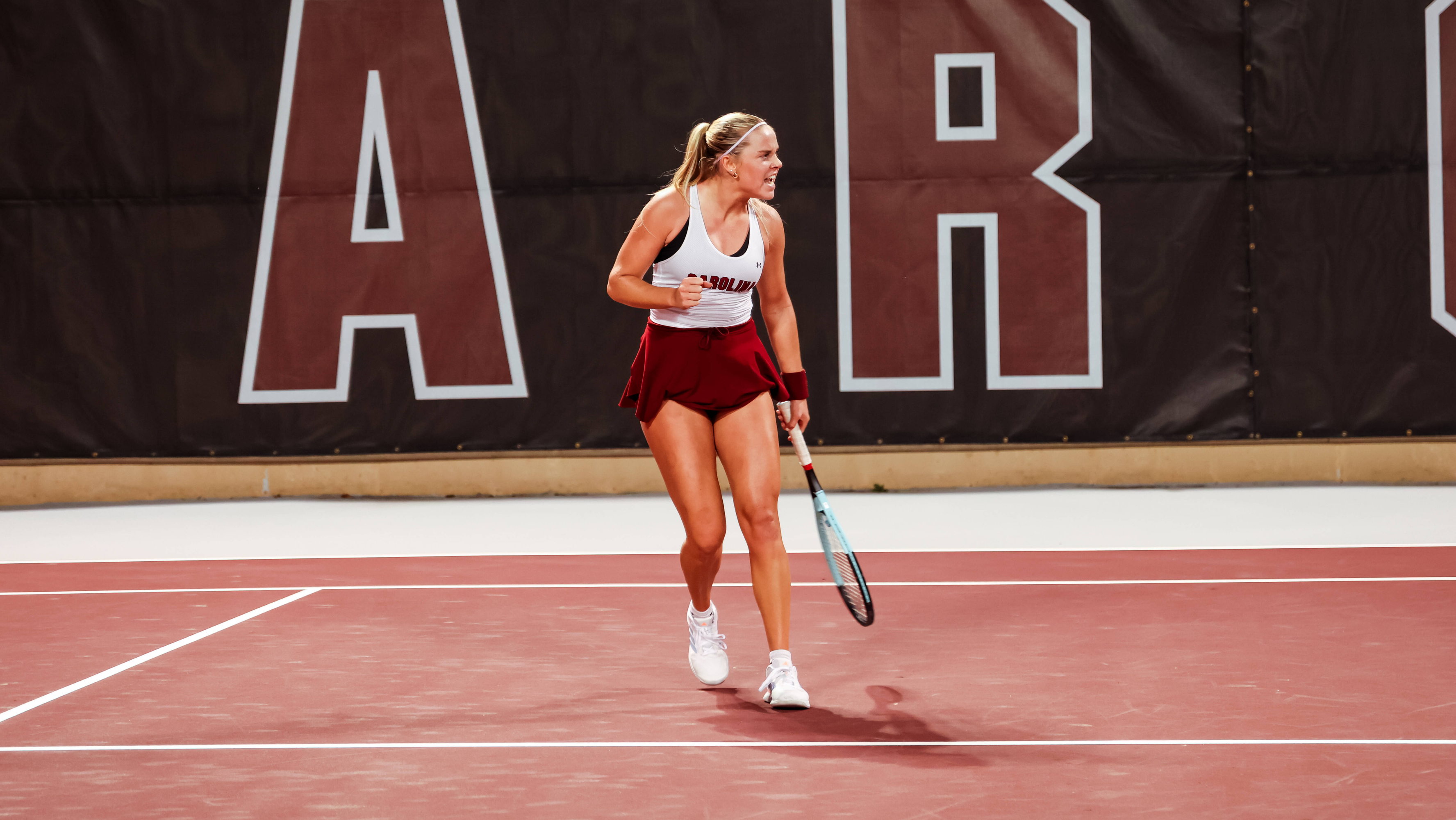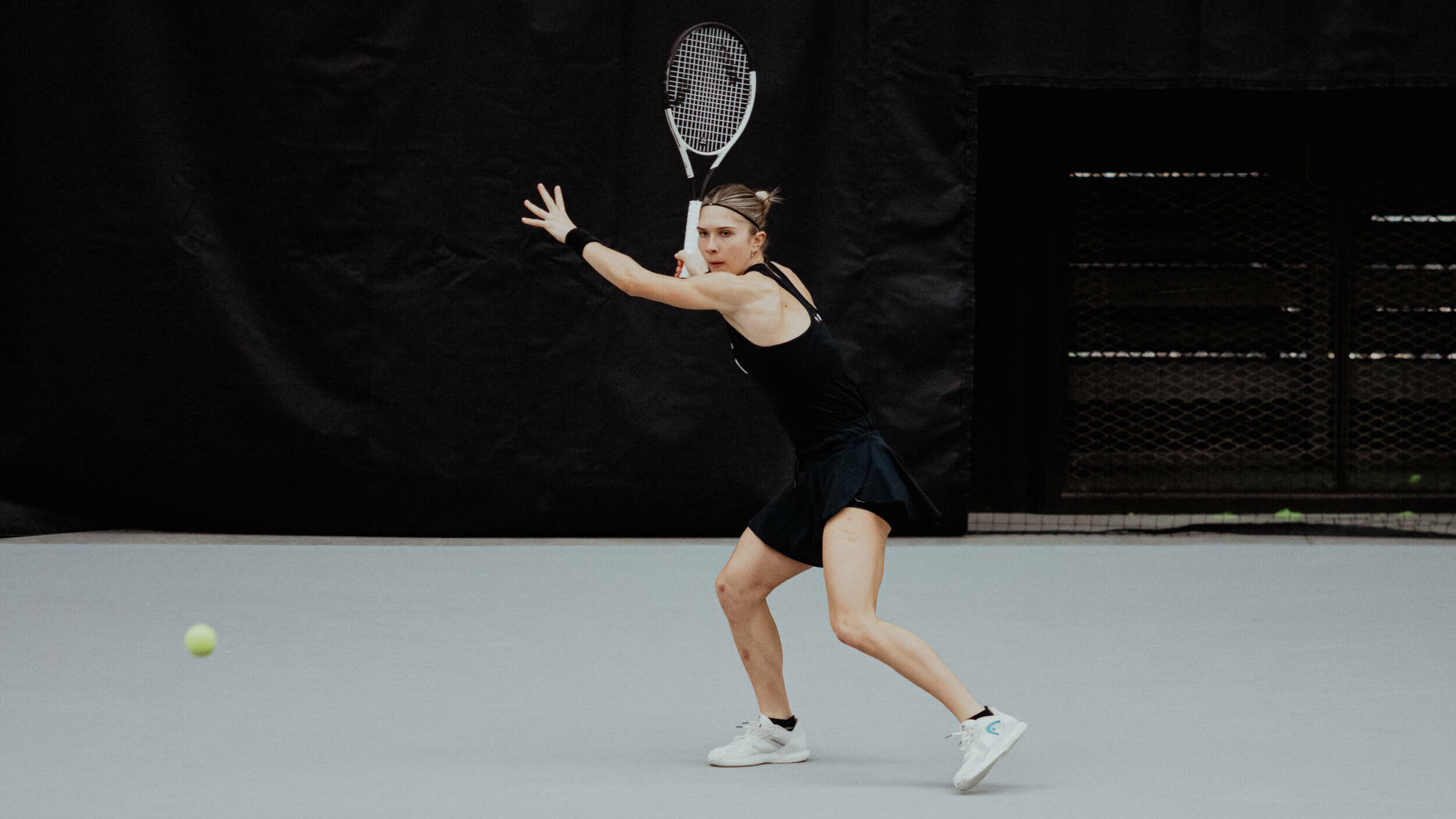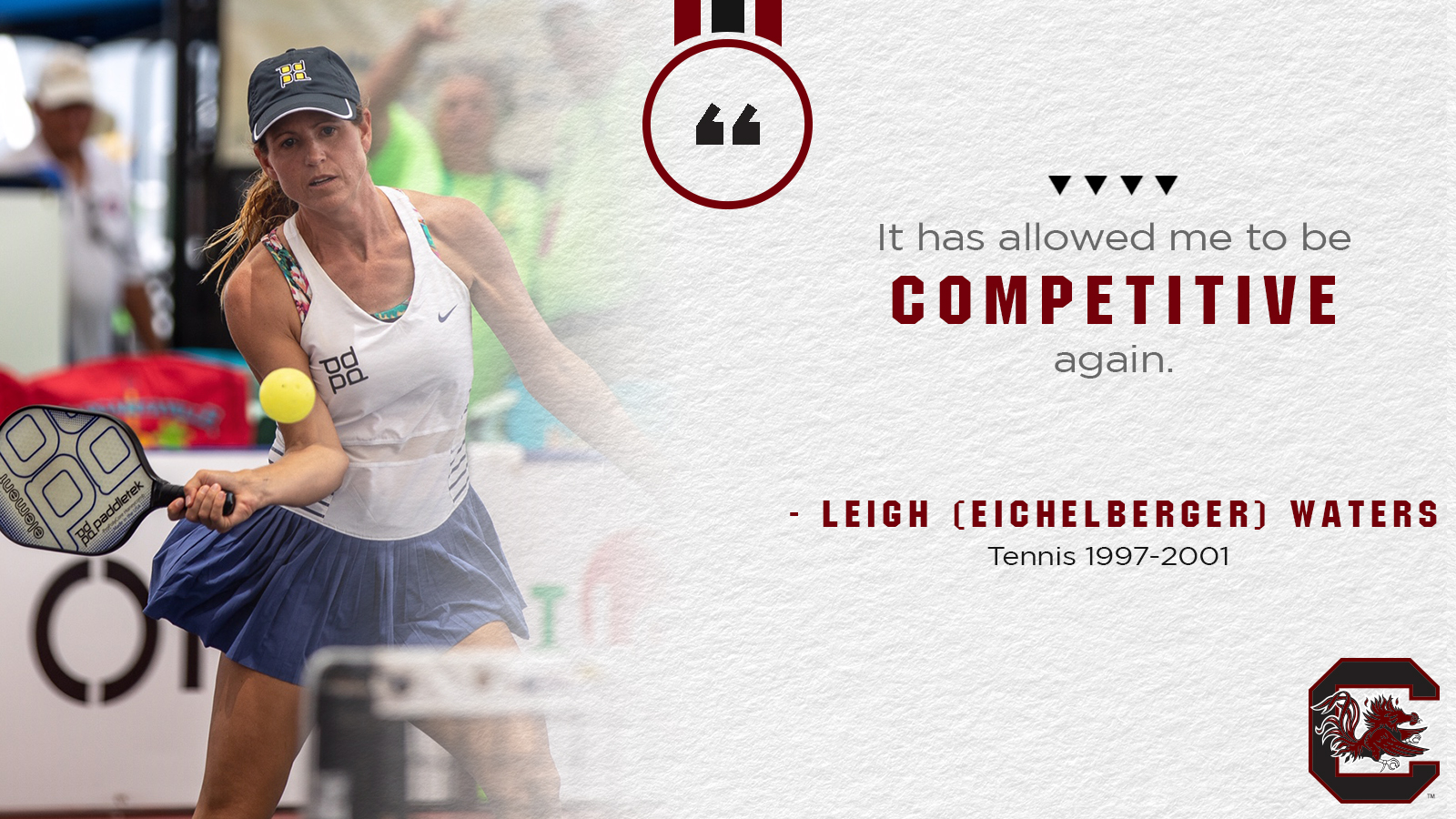
Former tennis player now among world's best on another court
Leigh (Eichelberger) Waters may have put down the racket and hung up the lawyer suit, but the former South Carolina tennis player (1997-2001) picked up the paddle and has teamed up with her 13-year-old daughter, Anna Leigh, to become one of the top professional pickleball players in the world.
“It has allowed me to be competitive again,” said Waters, who now lives in Delray Beach, Fla. “Who would have thought a 41-year-old could compete against 20-year-olds and win at a professional level? It’s pretty cool.
“My daughter and I have contracts with pickleball paddle sponsors, and because we’ve been winning a lot, we’re getting some decent prize money. Between the two, I decided this was a little more fun than ‘lawyering.’ So, I figured I would do this while I can!”
Waters and her family were up visiting her father in Pennsylvania two and a half years ago, and after he taught them how to play, they were hooked.
“As soon as we got back to Florida, we found the closest pickleball club and within a few months we were playing tournaments,” Waters said. “It just escalated from there.”
In a short time, Waters and her daughter ascended the ranks and won the doubles title at the U.S.A.P.A. Nationals at Indian Wells (Calif.) last November.
“It was pretty amazing. We finished as the No. 1 doubles team, and I finished No. 1 overall,” Waters said. “They have three of what they call ‘major’ tournaments. They have the U.S. Open in April; my daughter and I hadn’t started playing together yet last year. The second is the Tournament of Champions in August in Utah, and we won that. We went into Nationals and won that. They turn all the tennis courts there into pickleball courts. We travel together, and it’s great exercise.”
For those not familiar with the sport, pickleball is somewhat similar to tennis with several differences.
“It’s a smaller court. You use paddles instead of strung rackets, and the ball is kind of like a whiffle ball,” Waters explained. “There’s an area on either side of the net called ‘the kitchen,’ where unless the ball bounces, you’re not allowed to hit balls out of the air. That can be an equalizer, so you can’t just run up and smash it out of the air like you could in tennis.”
” We’re hitting the ball a lot harder and the exchanges have become super-fast and hard.”
That’s not to say the pickleball is slow and plodding as the game has indeed evolved.
“It’s hard to describe if you have never played it because it looks like it’s kind of slow, but it’s actually very fast-paced,” Waters said. “I like it because you have a lot of really fast exchanges, unlike tennis. It’s a very social sport.
“It’s harder to be aggressive, and my daughter and I have sort of changed things a little bit. There was a lot of dinking, where you just sort of tap the ball over the net. Anna Leigh and I came in and were very aggressive. The game has gotten a lot faster. You’re either a ‘dinker’ or a ‘banger.’ The word ‘banger’ had a negative connotation for a long time. When the sport first started, it was mainly older people who were playing it. Now the sport has become a lot younger, so we’re hitting the ball a lot harder and the exchanges have become super-fast and hard. It’s pretty cool to see how the game has changed in the two years that we’ve been playing.”

Similar to tennis, players are ranked and categorized according to their ability and having a tennis background certainly helps in the ability to improve quickly.
“It can go from 2.5 to 6.5 as the highest,” Waters said. “Professionals are considered 5.0 or higher. Last year I finished at 6.4. This past year they’ve put together professional tours, and the sport has grown exponentially in the last year with a lot more money being infused into it with bigger sponsors.
“Most of the best players came from some type of racket sport. There are a lot of similarities with your swings. You still hit your ground strokes in pickleball like tennis. The main differences are the ‘dinks,’ which are more finesse shots. That took the most work to get comfortable with.”
Prior to the COVID-19 pandemic, Waters was scheduled to be traveling for tournaments for 25 weeks during the year. She no longer plays tennis, and she stopped practicing law after more than a decade of working remotely for a Columbia firm.
“It just got so busy as our travel schedule is insane,” Waters said. “My daughter is homeschooled, she plays tennis, and she is also a very high-level travel soccer player. So, between all of that, we have a pretty tight schedule. In the past year, I also started teaching pickleball. Until about a year ago, I was a lawyer for Nelson Mullins in Columbia and had worked there for 14 or 15 years.”
While she’s not playing tennis, she does have many fond memories of her days as a Gamecock, and she is married to former South Carolina golfer Stephen Waters.
“There is something about Columbia and that campus that just has so much athletics spirit,” Waters said. “I really miss being a student-athlete there with the way we supported one another; going to the basketball games and the soccer games and the football games. The close-knit family and support that we had from everyone from the athletics director to everyone there in the office, it just felt like home there. I miss the team camaraderie. It was an amazing experience.”


